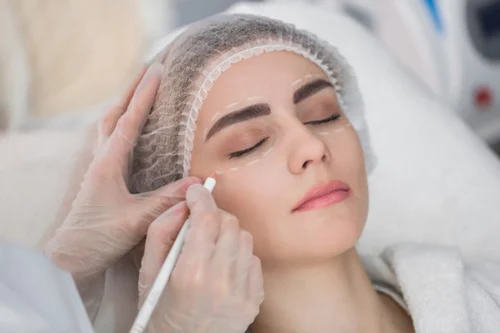Technological advancements have transformed the field of cosmetic surgery. Emerging tools and techniques offer enhanced precision and shorter recovery times, reflecting the dynamic nature of this medical field. These innovations are important in improving patient outcomes and experiences.
The Integration of Advanced Imaging in Cosmetic Surgery
Cosmetic surgery has evolved significantly with the integration of advanced imaging technologies. These technologies enable surgeons to create detailed pre-surgical plans. They provide a visual representation of potential outcomes, aiding both surgeons and patients in decision-making processes. This approach contrasts with earlier practices where such detailed previews were not available.
Minimally Invasive Techniques
Recent advancements have led to a shift towards minimally invasive techniques in cosmetic surgery. These procedures often require smaller incisions, resulting in less scarring, and typically have shorter recovery times. This shift is evident in various procedures, ranging from facial rejuvenation to body contouring. Dr. Neinstein and other leading surgeons are at the forefront of incorporating these technological advancements into their practice. Their work exemplifies how technology is reshaping cosmetic surgery, offering new possibilities for both surgeons and patients.
The Role of 3D Printing in Custom Implants
The application of 3D printing technology has brought a significant change in the production of custom implants for cosmetic surgery. This technology allows for the creation of implants tailored to the individual’s specific anatomy, enhancing the precision and fit of these devices.
Laser Technology in Cosmetic Procedures
The application of laser technology in cosmetic surgery has expanded over the years. This technology is used in various procedures, including skin resurfacing and the removal of tattoos and scars. The precision offered by laser technology has improved the outcomes of these procedures.
The Emergence of Non-Surgical Options
In recent years, there has been an increase in non-surgical cosmetic procedures. These options, like injectables and laser treatments, offer alternatives to traditional surgical methods. They cater to individuals seeking less invasive procedures.
The Impact of Virtual Reality in Cosmetic Surgery
Virtual reality technology is now being explored in the domain of cosmetic surgery. It offers a unique tool for patient education and engagement, allowing individuals to visualize potential outcomes in a virtual environment. This technology is still in its early stages but shows promise for future applications.
Telemedicine in Patient Consultations
Telemedicine has become a valuable tool in cosmetic surgery consultations. It enables remote consultations, allowing patients to seek advice and discuss procedures without the need for physical appointments. This approach has increased accessibility for patients.
Data-Driven Decision-Making in Cosmetic Surgery
The availability of extensive data has influenced decision-making in cosmetic surgery. Surgeons can access a wealth of information, including procedural outcomes and patient feedback, which informs their practice and enhances patient care.
Customized Patient Care Through AI
Artificial intelligence (AI) is beginning to play a role in cosmetic surgery. AI algorithms can analyze patient data and assist in creating personalized treatment plans. While AI’s role is still developing, its potential for enhancing patient-specific care is evident.
The Role of Robotics in Cosmetic Surgery
Robotics is another area that is beginning to influence cosmetic surgery. While robotic-assisted surgery is more prevalent in other medical fields, its application in cosmetic procedures is being explored. Robotics offers the potential for increased precision and control in surgical procedures.
The Influence of Social Media on Cosmetic Surgery Trends
Social media has an undeniable impact on the trends and demands in cosmetic surgery. Surgeons and patients now have platforms to share and view cosmetic surgery outcomes, which can influence decision-making and trendsetting in the field.
Enhanced Recovery Through Technology
The role of technology in post-operative recovery has seen noteworthy advancements. Modern devices and software are used to monitor patients’ recovery progress, offering real-time data to both patients and surgeons. These tools can track healing, manage pain, and reduce the risk of complications. The use of such technology in recovery demonstrates an emphasis on patient care post-surgery.
Ethical Considerations in Technologically Enhanced Cosmetic Surgery
As technology continues to advance in cosmetic surgery, ethical considerations have become increasingly important. Surgeons face decisions regarding the appropriate use of these technologies, balancing patient expectations with realistic outcomes. Ethical considerations also extend to the affordability and accessibility of high-tech procedures, ensuring equitable access to these advancements.
The Future of Cosmetic Surgery Technology
Looking towards the future, the potential for further technological advancements in cosmetic surgery is substantial. Research is ongoing in areas like tissue engineering and regenerative medicine. These fields may offer new possibilities for cosmetic procedures, further transforming the terrain of cosmetic surgery. While predictions about the future are speculative, the trend towards more advanced, patient-centric technology is clear.


